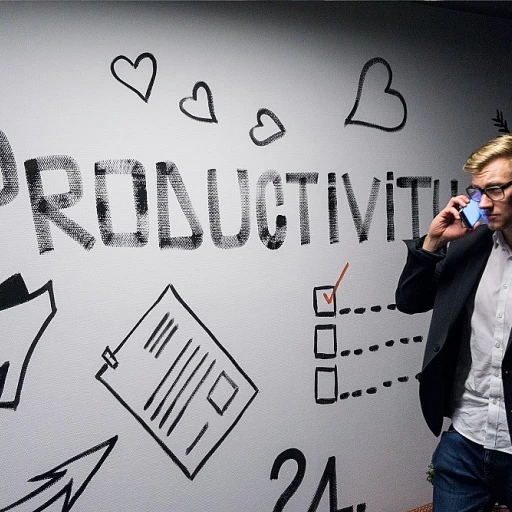Defining Fixed and Group Mindset
Exploring the Nuances of Personal Mindset
In today's fast-paced world, understanding different mindset paradigms is essential for personal and professional growth. When we talk about mindsets, we're generally referring to the fixed mindset and the group mindset. A fixed mindset is one where individuals believe their abilities and intelligence are static. They may think that their skills are predetermined and, consequently, may shy away from challenges or feel threatened by the success of others. Despite these limitations, a fixed mindset training course offers a structured approach to address these beliefs, helping participants recognize and overcome their own internal barriers. In contrast, a growth mindset is a perspective where individuals see their talents and abilities as potential areas for development through dedication and hard work. This mentality promotes resilience and a comprehensive approach to learning. The group mindset particularly emphasizes collaboration and team-based growth. In this context, mindset training courses are designed to foster a culture of continuous learning and teamwork, often proving beneficial for leadership and management training. Both mindset paradigms play vital roles in mindset coaching and life skills development programs. Recognizing where you or your organization stand can be the first step toward effective mindset training. Regardless of whether you're pursuing a fixed mindset training program for specific challenges or a growth mindset learning approach, incorporating structure and support through a formal course or workshop can significantly impact your personal and business life. Moreover, choosing the right mindset coaching tailored to your needs can transform existing approaches to time management, mental resilience, and professional development. Understanding the benefits, challenges, and aligning them with your goals is crucial—especially when exploring additional sections discussing certifications and case studies of success stories in mindset training, which further highlight the transformative power of these programs.The Role of Certification in Mindset Training
The Importance of Certification in Mindset Training Programs
Understanding the role of certification in mindset training is crucial for anyone looking to enhance their personal and professional development. Certification serves as a formal recognition of the skills and knowledge gained through a mindset training course, providing a tangible testament to your commitment to growth and learning. Certification in mindset training programs, such as those focusing on growth mindsets or leadership, offers several advantages:- Validation of Skills: A certification validates the skills and knowledge acquired during the training. This is particularly important in professional settings where demonstrating expertise is essential for career advancement.
- Enhanced Credibility: Holding a certification enhances your credibility in the eyes of employers, peers, and clients. It signals that you have undergone rigorous training and are equipped to apply mindset principles effectively.
- Motivation and Accountability: The process of earning a certification can motivate individuals to engage more deeply with the training material. It also holds them accountable to complete the course and apply what they've learned.
- Structured Learning Path: Certification programs often provide a structured learning path, ensuring that participants cover all necessary topics comprehensively. This can be especially beneficial in complex areas like leadership or team management.
Benefits of Group Mindset Training
The Transformative Power of Group Mindset Training
Group mindset training programs provide an abundance of benefits that are instrumental in driving both personal and professional development. These training courses are crafted to foster a growth mindset, promoting resilience and continuous learning within a team dynamic. Here’s how engaging in a mindset training course can profoundly impact your business life and beyond. A primary advantage of group training is the collaborative environment it cultivates, which is essential for nurturing a supportive team. Through group learning, individuals are exposed to diverse perspectives and approaches, enriching their understanding and encouraging a mindset growth that thrives on diversity. Moreover, participating in a group setting can significantly enhance leadership and management training skills. By engaging with peers, you are able to practice leadership strategies in a controlled environment, paving the way for real-world application. This approach also bolsters time management abilities as participants learn to allocate time effectively during group activities. Another notable strength of mindset training programs is the reinforcement of learning through peer interaction and mentorship. These elements are critical in helping participants overcome traditional fixed mindset challenges and shift towards embracing growth mindsets. For insights on mentoring strategies, the effective mentoring strategies for team development could be an invaluable resource. Finally, mindset training workshops facilitate the development of interpersonal skills that are fundamental in today’s dynamic workplaces. As communication and collaboration are stressed, participants experience a boost in their ability to convey ideas clearly and work harmoniously with others. This, in turn, promotes an environment where everyone is encouraged to contribute to the collective goals of the organization. In conclusion, engaging in group mindset training courses can substantially enhance your skill set, instilling a culture of growth that permeates through all aspects of life and business. Embracing this smart approach to personal and professional growth will undoubtedly lead to success in numerous areas.Challenges of Fixed Mindset Training
Recognizing the Barriers of a Fixed Mindset
In the journey of mindset training, one of the significant hurdles is overcoming a fixed mindset. This type of mindset can be a substantial barrier to personal and professional growth. A fixed mindset is characterized by the belief that abilities and intelligence are static traits that cannot be developed. This perspective can hinder individuals from embracing challenges and learning from failures.
Impact on Personal and Professional Development
When individuals adhere to a fixed mindset, they often resist new learning opportunities and avoid situations where they might fail. This resistance can impede the development of crucial skills necessary for leadership and business success. In contrast, a growth mindset encourages resilience and the continuous learning needed for personal and professional development.
Challenges in Fixed Mindset Training Programs
Training programs aimed at shifting from a fixed to a growth mindset face several challenges. Participants might be reluctant to engage fully in mindset training courses, fearing judgment or failure. Moreover, without the right coaching and support, these training workshops may not effectively foster growth mindsets.
Overcoming the Fixed Mindset with Effective Strategies
To successfully transition from a fixed mindset, training programs need to incorporate strategies that encourage openness and adaptability. This includes creating a safe learning environment where individuals feel comfortable taking risks and making mistakes. Additionally, integrating time management and resilience-building exercises can help participants learn to embrace challenges as opportunities for growth.
Ultimately, overcoming the challenges of a fixed mindset requires a comprehensive approach that combines mindset coaching, continuous learning, and supportive team dynamics. By addressing these challenges, individuals can unlock their potential and achieve greater success in both their personal and professional lives.
Choosing the Right Mindset Training for You
Navigating Your Ideal Mindset Training Path
Determining the most fitting mindset training course for personal and professional development largely hinges on understanding your unique needs and goals. It's important to consider various factors that align with your aspirations, learning preferences, and current life or business challenges.- Assess Your Mindset: Begin by evaluating whether you currently possess a fixed mindset or are on the path to embracing a growth mindset. This introspection is essential as it informs the type of training course that will be most beneficial for your growth.
- Identify Learning Objectives: What skills do you aim to develop? Are you looking to enhance leadership qualities, boost team collaboration, or strengthen time management abilities? Clearly defining these objectives will help in selecting a training program that addresses these specific areas.
- Training Format Preferences: Decide on whether you prefer online or in-person mindset training workshops. An online program offers flexibility, while in-person courses might provide more immersive experiences. Factor in your schedule, learning style, and desired level of interaction.
- Explore Available Resources: Take time to research the best mindset courses available. Consider those that provide comprehensive coaching, foster resilience, and encourage continuous learning. Look into the qualifications of trainers and the potential for certification, as addressed earlier.
- Consult Testimonials and Case Studies: Real-world success stories can provide valuable insights into the effectiveness of various mindset training programs. These accounts can guide one's choices, highlighting scenarios where similar professional and personal development goals were achieved.
- Evaluate Costs and Commitment: Before committing, weigh the financial and time investments required for the mindset training. Consider the balance between upfront costs and long-term benefits for personal and professional advancement.
Case Studies: Success Stories in Mindset Training
Transformative Journeys: Real-Life Mindset Training Success
Mindset training has become a pivotal component in personal and professional development, with many individuals and organizations reaping its benefits. Here, we explore some real-life success stories that highlight the transformative power of mindset training programs.
From Fixed to Growth: A Team's Journey
One notable case involves a business team that initially struggled with a fixed mindset. They were resistant to change and hesitant to embrace new ideas. Through a comprehensive mindset training workshop, which included elements of leadership coaching and resilience-building, the team gradually shifted towards a growth mindset. This transformation was marked by increased collaboration, enhanced problem-solving skills, and a more innovative approach to challenges. The team's newfound flexibility and openness to learning significantly boosted their productivity and morale.
Leadership Transformation Through Mindset Coaching
In another instance, a senior executive in a large corporation underwent a personal mindset coaching program. The executive had previously adhered to a fixed mindset, often doubting their ability to adapt to the rapidly changing business environment. Through targeted coaching sessions and continuous learning courses, they developed a growth mindset that empowered them to lead their team more effectively. This shift not only improved their time management skills but also fostered a culture of continuous improvement within their organization.
Online Learning and Personal Growth
Online courses have also played a significant role in mindset transformation. One individual, seeking personal and professional growth, enrolled in an online mindset course. The course offered insights into overcoming challenges and building resilience. As a result, the individual experienced a profound change in their approach to both life and work, embracing opportunities for growth and learning with newfound enthusiasm.
These stories underscore the impact of mindset training programs. Whether through team workshops, leadership coaching, or online courses, the journey from a fixed to a growth mindset can lead to remarkable personal and professional development.












